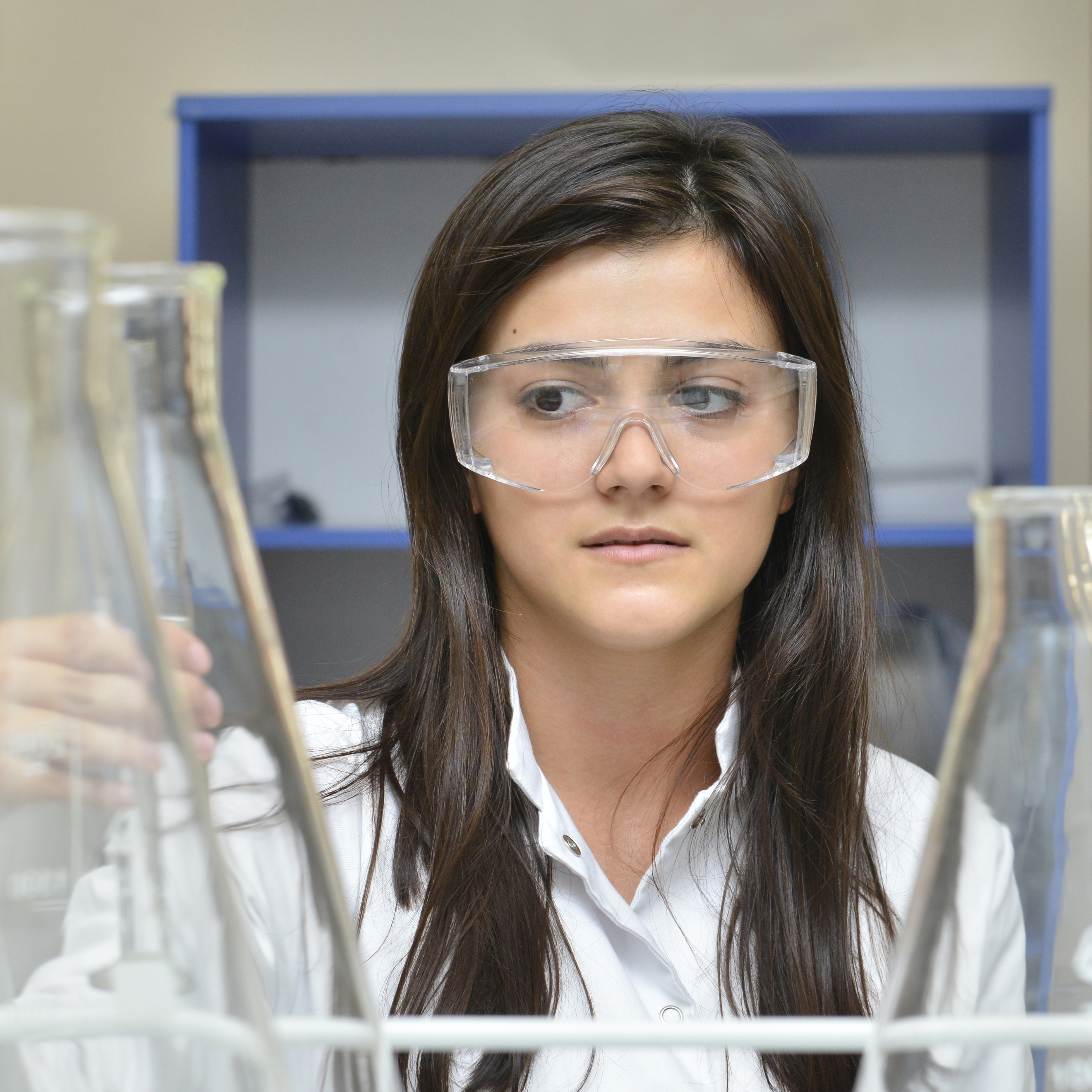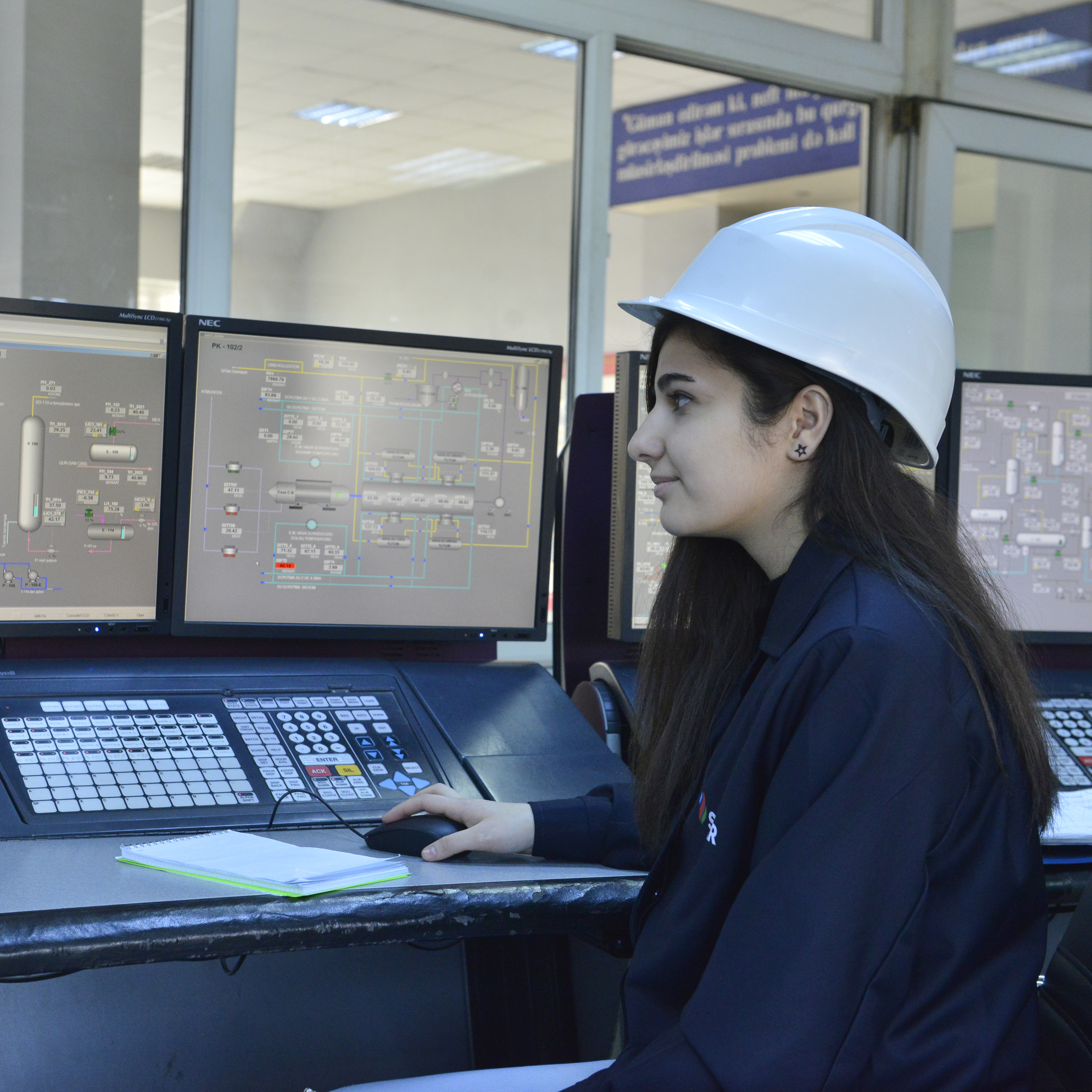
Undergraduate
General Information
Chemical engineers design processes to convert raw materials and intermediate chemicals into more useful products in energy-efficient, environmentally friendly, and cost-effective ways. While working on the process of obtaining value-added products, chemical engineers also help manage global resources, protect the environment, and meet health and safety standards.
The Department of Chemical Engineering of Baku Higher Oil School was established in 2013. The department offers bachelor's, master's, and doctoral degrees in chemical engineering. Undergraduate and graduate programs are based on the curriculum of Heriot-Watt University (Scotland, UK). Students are involved in four years of chemical engineering program after successfully completing English and ICT training in the first year of undergraduate education. Each year, approximately 250 students study at the bachelor's level and the master's level of chemical engineering.
During their studies, students apply their theoretical knowledge by conducting experiments in the laboratories of the Department of Chemical Engineering.
Learning outcomes
- An ability to identify, formulate, and solve engineering problems;
- An understanding of professional and ethical responsibility;
- An ability to communicate effectively;
- The broad education is necessary to understand the impact of engineering solutions in a global, economic, environmental, and societal context.

Laboratories
The Laboratories of the Chemical Engineering Department encompass state-of-art experimental units and devices with which students can perceive hands-on experience in focal subjects like Process Industries, Separation Processes, and Chemical Reaction Engineering. Alongside the mentioned laboratories, the Chemical Engineering Department of Baku Higher Oil School houses Research Laboratories which give undergraduate students and faculty members opportunities to conduct innovative investigations. The Chemical Engineering laboratories do not only serve its students but also students from other disciplines such as Petroleum Engineering. Research Laboratories of the department create a framework that facilitates knowledge transfer and collaboration amongst students, researchers, and faculty members.
In the second year of the bachelor's degree, students take 6 laboratory sessions in Process Industries A and B courses, with 3 laboratory experiments per semester. In the fourth year of the chemical engineering course, students attend 6 laboratory sessions within the scope of Chemical Reaction Engineering and Separation Processes A/B courses, with two sessions allocated for each. The Chemical Reaction Engineering and Separation Processes laboratories are provided with state-of-art experimental units manufactured by GUNT (Hamburg, Germany).

Partners
According to the policy of the program of the university, students are sent to various plants and companies operating in the oil and gas industry during the summer internship within the curriculum. In these plants, students are informed about the chemical processes, operation of facilities, technological regulations, control systems, health, safety, and environmental protection rules.
Initially, first-year students attend the Marine Life Protection Training Center of SOCAR's Training, Education and Certification Department, and starting from second year, they participate in summer schools for internships at various companies with which the university has close partnerships.
At various enterprises such as Azerikimya PU, SOCAR Methanol Plant, SOCAR Urea Plant, Heydar Aliyev Oil Refinery, SOCAR Polymer, SOCAR's "Oil and Gas Research Project" Institute, summer internships and field trips are organized for students majoring in chemical engineering. Employees of the “Chemical engineering” department also participate in this process together with students.
